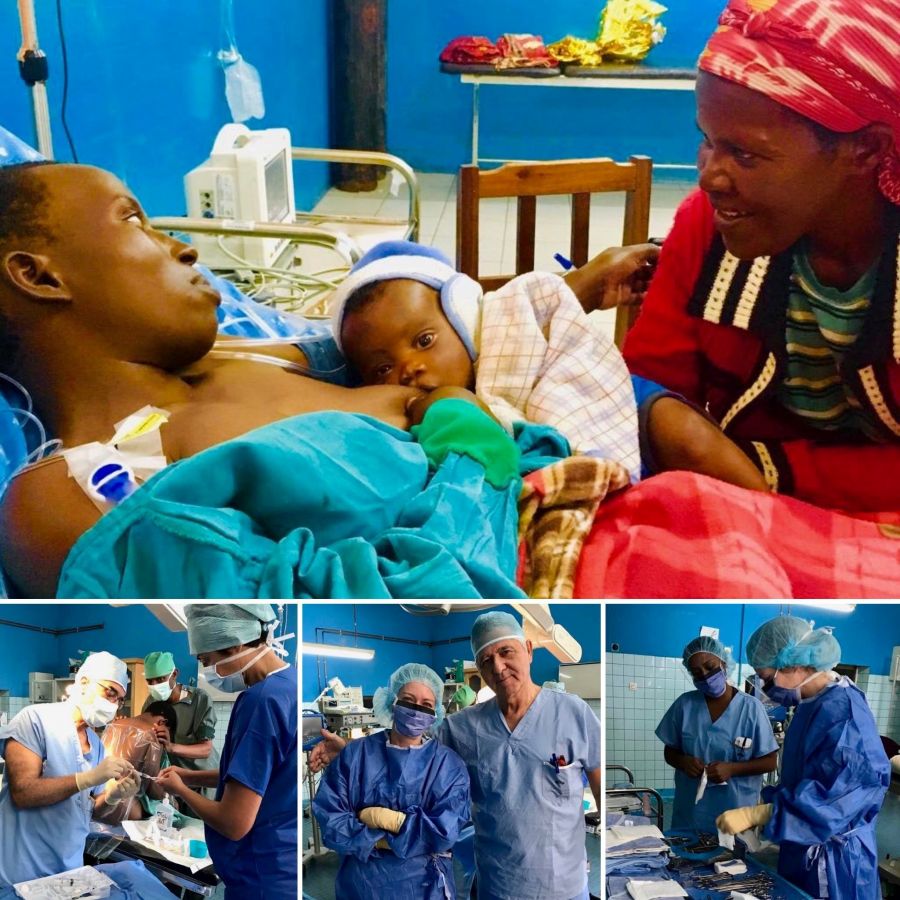
There is an African proverb that says, “Do not let the sun set twice on a labouring woman.” As you are reading this, many African women are going through difficult, extremely painful labour without access to proper medical care. Every day, more than 800 women die from labour complications, and those who survive are often left with a debilitating childbirth injury, called obstetric fistula.
Obstetric fistula? You have maybe never heard about it because it does not exist in countries where women have access to quality obstetric care. Sadly, this is not the case for too many African mothers.
During excruciating obstructed labour that can last days, the head of the baby pressing against the sacrum and the pubic bone causes tears (fistulas) in the tissues between the vagina and the bladder and/or the rectum. Too often, the baby dies, and the mother is left with constant urinary or stool incontinence that is devastating for her physical and mental health.
More than 2 million women around the world live with obstetric fistula in sub-Saharan Africa and Asia. Surgical treatment is possible, but local health centres often lack resources and training to perform these complex operations.
There are several organizations around the world working to eradicate obstetric fistula, including one in Canada – la Fondation mères du monde en santé. This Montreal-based non-profit has offered, since 2011, free fistula repair surgery to more than 100 women in Burkina Faso and Rwanda.
The MMS team has just returned from their 10th humanitarian fistula repair mission in Rwanda. The team of volunteer doctors and nurses from Canada, France, Israel and United States offered care to 9 women, and saw the patients who had their surgery in June 2018 for follow-up.
The Foundation conducted a study on the experiences of women living with obstetric fistula in Burkina Faso. Many women experienced shame and exclusion from their families and their community. People often misunderstand the causes and impacts of obstetric fistula, and women cannot continue working/studying or participating in community activities, which has an important impact on their financial autonomy and mental health. Out of 36 women interviewed before their surgery, 14 reported symptoms of depression and 10 reported suicidal thoughts. For women who had a successful fistula repair surgery, there was complete social rehabilitation within the community. The success rate of the surgery was 56%, and 76% if counting the cases where the situation improved, but women were not completely healed. It is important to think about strategies to support women who have to go through unsuccessful surgeries and women who have incurable fistula.
This is Claudine, 20 years old. The Mères du monde en santé (MMS) volunteer team first met her in June 2017. By then, she had lived with obstetric fistula for 4 years. She was only 14 when she gave birth for the first time, to a stillborn baby after a week of excruciating labour. She had to stop school because of constant leaking of urine and odor caused by her childbirth injuries. MMS operated on Claudine three times: in June 2017, in November 2017, and in June 2018. In November 2018, the team saw her for a follow-up – she is healthy and radiates joy!
Humanitarian missions to provide life-changing surgery to women who need them so much must be accompanied by longer-term initiatives to build well-resourced health care systems that are able to provide quality care to women before, during, and after their pregnancy. We need to train local personnel to build capacity for fistula surgery and prevent obstructed labour. We need to better understand the causes of fistula and its prevalence to develop tailored interventions and prevention strategies; while international organizations like WHO provide estimates on the number of cases around the world, national-level data is often not available. Finally, we need to work with governments and communities to raise awareness around obstetric fistula and provide support to women who live with this condition, as well as to make sure that women and girls have the power to decide when and if they want to become pregnant.
Obstetric fistula does not exist in many countries, and we have to eradicate this preventable and treatable injury that continues to have devastating consequences on the lives of too many women and girls around the world.
Fondée à Montréal en 2011, la Fondation Mères du Monde en Santé (MMS) est le seul organisme à but non lucratif au Canada qui œuvre pour pour améliorer la santé maternelle en Afrique. Dans le but de participer à l’effort mondial visant à éradiquer les fistules obstétricales, MMS organise deux missions chirurgicales par année, appuie des équipes de prévention sur place et mène des programmes de formation du personnel local.
Published:
December 5, 2018
Author:
La Fondation Mères du Monde en Santé (MMS)
Categories:
SHARE THIS POST: